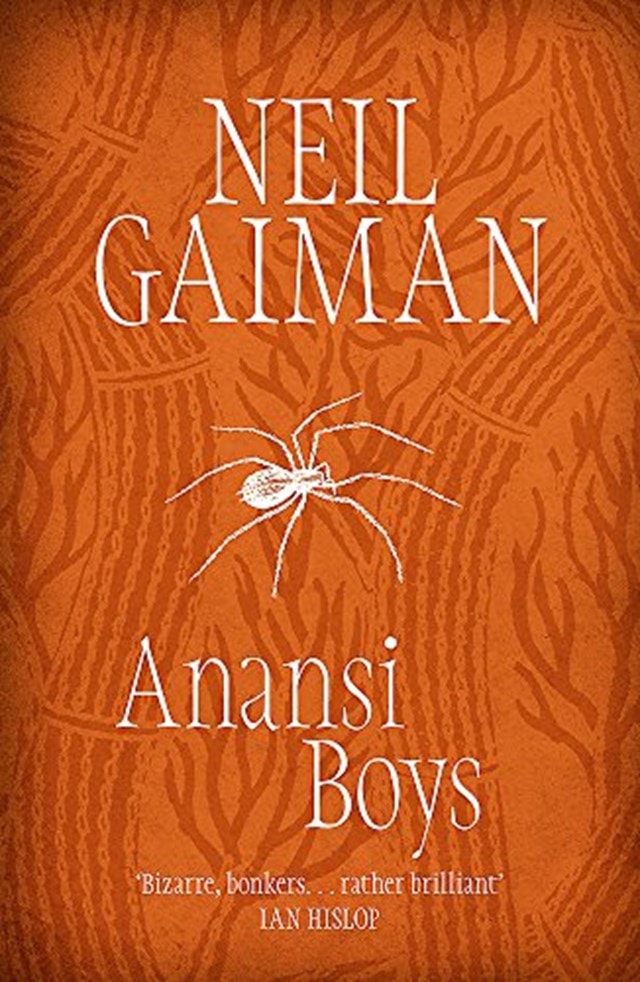Anansi Boys is a book of two distinct halves. The first is much more grounded, mostly taking place in the real world with the odd dash of magic here and there, while the second delves into fantasy, morphing into something darker and stranger. Though the first half wasn’t bad, I much preferred the second, since that’s the area where Gaiman really excels.
The storytelling is strong, and the reader quickly gets to know and like Fat Charlie (who’s not actually fat, only gaining that nickname through his father’s mischievousness). It’s much more of a comedy than most of Gaiman’s other work, which, seeing as it’s about Anansi, is appropriate. However, there are still scenes of his trademark creepiness, particularly involving a character called the Bird Woman, and a rich and satisfying depiction of myth.
It’s also notable for featuring predominantly black characters, which is less of a rarity in fantasy literature now than 2005, but still worth pointing out. Gaiman draws on Afro-Caribbean culture in many elements of the book, doing so in a way that is respectful rather than appropriative. As an author he has always been devoted to inclusiveness, and it’s good to see that principle extend to a whole book.
Where it falls short is in holding the reader’s interest in the early sections. While the setup is good, the book takes a while to find its feet, initially feeling as though it has a limited scope. However, once the story gets going, its as good as anything in Gaiman’s oeuvre.
Neil Gaiman has long been one of my favourite authors, but Anansi Boys has been the one book of his that had somehow slipped through the cracks. I’m glad to have finally remedied that. Like Murakami’s Tsukuru Tazaki, it’s a book written after a masterpiece that’s not the author’s best, but is a perfect example of their own specific tendencies. For Gaiman, this means that it has magic, gods, humour, horror, a welcoming spirit, and a compassionate and humane outlook. In the end, I enjoyed it a lot. It’s a fine example of everything he does best.
Review by Charlie Alcock

 RSS Feed
RSS Feed
